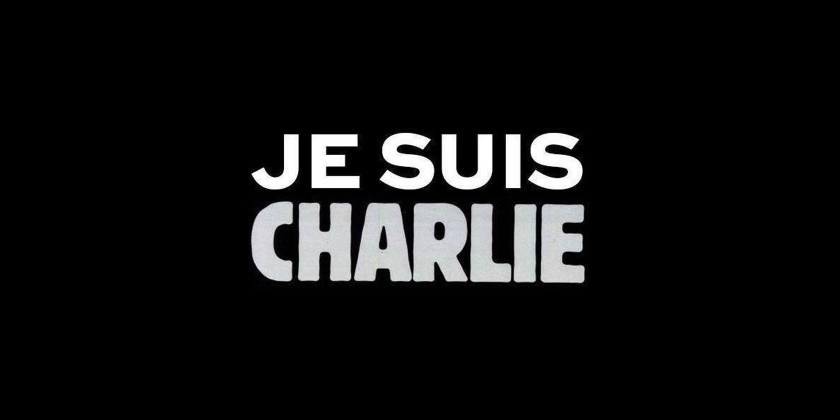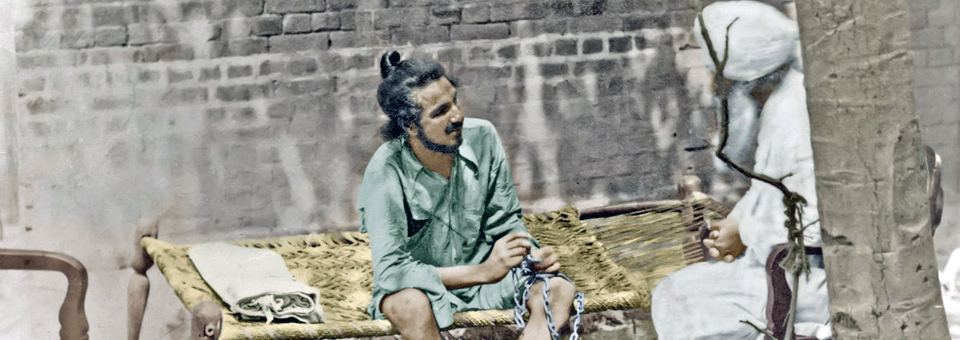In the past week, I’ve encountered two instances of racism. When the intentions were questioned, both perpetrators used the recent shooting of the Charlie Hebdo cartoonists as their shield.
The first occurred when a fellow writer here at NAUJAWANI.com overheard a work friend say “those Sikhs are so weird, they treat their holy book like its a real person“. When questions were raised about the intention of the statement, the work friend responded with “I’m entitled to free speech, I can say whatever I want. Je suis Hebdo!“. Thankfully, our writer was able to intelligently calm the situation down, explaining the importance of understanding other ways of life and eventually had a very fruitful conversation about Sikhi with the work friend.
The second occasion occurred when a family member insulted a Nigerian whilst watching The Voice (eek!) saying “ooh a Nigerian! He’ll probably want to scam the audience!” This wasn’t the first time I had heard such ruthless and bog-standard racism, but I questioned it and made my intolerance clear to him. He responded with “I have the right to freedom of speech; are you saying what the extremists did to the Hebdo cartoonists was okay?! I’m like Frankie Boyle! Are you saying he should stop doing standup too?!”
So I’ve been wondering, should racist or offensive art be censored? Do comedians have an obligation to be more sensitive?
Generally speaking, the media’s polarisation of the Charlie Hebdo shooting has been successful. We now are split into two types of people: those who believe that you should die if you offend a community and those who believe that the right to freedom of speech means you’re granted permission to be racist.
Let’s get freedom of speech clear: it is recognised as a human right under Article 19 of the Universal Declaration of Human Rights, whereby “everyone has the right to freedom of opinion and expression… through any media“.
But whilst The French Government is allowing the Hebdo magazine to continue to publish Islamophobic cartoons using Article 19 as the justification, what’s frustrating many international human rights organisations including Amnesty is how one form of satire is celebrated and even heavily rewarded by the French Government, where as the expression of 16-year-old high school students on Facebook deserves arrest. Stranger still, if it’s an attack on Judaism instead of Islam, you’re expected to remove it and apologise.
One of my closest friends shared with me, how he felt the shooting was not an issue of free speech at all. He gave an example, that it was more like if a group of youths teased and insulted a homeless man for months on end, he’d eventually lash out. It brings into play the importance of recognising the privilege an individual possesses when they’re making satirical remarks. There’s a great article worth reading on New Left Project by Neil Kennedy, about the importance for artists and comedians to ‘punch up’ with comedy. I found it very useful as both a re-enforcement of my choice of targets in Narvision parodies and also clarifies why I find the Charlie Hebdo cartoons so tasteless. They contain no truth value and were designed to upset another community. There’s a quote in the article I found particularly potent: “Finley Peter Dunne, the journalist, originally coined the phrase ‘comfort the afflicted and afflict the comfortable’ when talking about the role that newspapers should have“.
We all have the right to express whatever we want, however we want. But don’t expect the same level of respect if your content has an insufficient amount of Truth. When it comes to comedy, I’ll pick legends like Bill Hicks rather than the low-blow busting homophobe Frankie Boyle any day. When it comes to the satirical news, I’ll skip the Islamophobic newspapers for intelligent satire like Jon Stewart’s ‘Daily Show’ or classics like Chris Morris’ ‘The Day Today’ or ‘Brass Eye’.
I enjoy the diversity of life and the options we have. It enables us to pick what we love and boycott what we hate. Whatever is left is an indicator of where society stands. Knowing Mr Khan is one of the most watched comedies on the BBC is a sad fact. Ironically, I’ve come across many members of our community who enjoy shows like Mr Khan, even though it has stark similarities to the clearly racist shows of the 1980s, such as ‘Mind Your Language’ where immigrants who couldn’t/wouldn’t assimilate into British culture were the butt of the joke. It appears that as long as we’re not the target, we’ll ignore it. The more we as individuals critically engage with everything around us, the more we’ll see what’s worth putting our energy into and what’s not. Every single one of us is entitled to have an opinion and express it any which way we deem fit, but as Sikhs we want to bring the world closer together to ensure we celebrate our equal divine potential. We often summarise the role of a Sikh as Sant, empowerer of the needy, and as Sipahi, fighter of oppression. I believe we have a responsibility to those who don’t have the resources or strength to have a voice and I lean on the final lesson of Guru Tegh Bahadur as a source of inspiration and strength. Therefore as Sikhs, we should be engaging and supporting art, comedy and any other form of media when it’s fighting this ultimate cause. But the media and the news are a reflection of what we want to see, and if we support those which are designed to poke fun at underprivileged communities, we’re doing a disservice to the House of Guru Nanak. I want intelligent and progressive media which challenges both the status quo and taboo topics, granting me the critical mind I need to change society for the better.
This article was inspired by two examples of ignorant people using the shooting of the Charlie Hebdo cartoonists and the material of certain comedians as their basis to be racist. We all deserve a voice, but unfortunately hypocrisy and lies run rampant all too often whilst the truth is quiet. Naturally if a society wants truth, those who have more truth in their thoughts and actions are raised higher and their voices become louder and clearer. Let’s be that voice.





